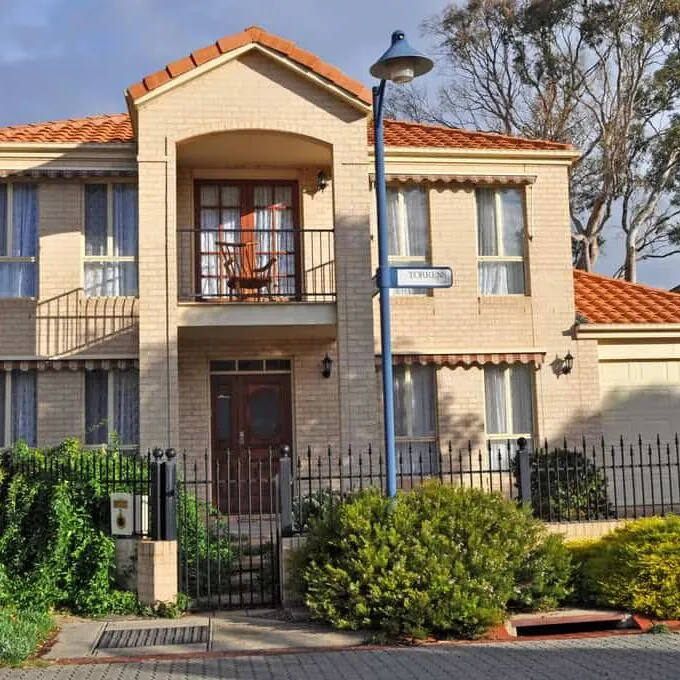The idea of owning a second home can be incredibly appealing. It could be a holiday house or an investment property that can generate additional income. But is buying a second home the right decision for you? Let’s explore the key considerations and steps involved in purchasing a second property in Australia. Top Reasons for […]
Redraw vs Offset: Which Should You Choose for Your Home Loan?
When taking out a home loan, you might focus too much on comparing rates and terms. We’re here to remind you to explore different home loan features before signing the dotted line. Two popular options that can help you save on interest and pay off your mortgage faster are redraw facilities & offset accounts. But which one is right for you? Let’s break down how each works, what to consider, and how to pick between the two. Here’s our quick redraw vs offset showdown.
Redraw Facility: How Does It Work?
A redraw facility enables you to pay more than your minimum loan repayments and then withdraw those extra funds if you need them. For instance, if your minimum monthly repayment is $2,000 and you pay $2,500, the extra $500 goes into your redraw facility. These extra payments reduce your loan balance and the interest charged, which can help you pay off your mortgage faster. And if you need the extra money later, you can redraw it from your loan account.
Things to Consider
- Accessibility: Redraw facilities are generally less accessible than offset accounts. You may need to request access through your lender and could face delays or fees.
- Discipline: This home loan feature is beneficial if you’re disciplined about making extra repayments and not withdrawing funds unless necessary.
- Loan Type: Redraw facilities are typically available on variable-rate loans and some fixed-rate loans, but not all lenders offer them. So, when picking between home loan redraw vs offset, you must consider the loan type that best suits your financial situation and other requirements.
- Tax Implications: If you plan to convert your home into an investment property, withdrawing funds from a redraw facility can affect the tax deductibility of your loan interest.
Offset Account: How Does It Work?
An offset account functions like a regular transaction account; you can use it to deposit and withdraw money. The only difference is it is linked to your home loan. So, the balance in this account can offset the amount you owe on your loan, reducing the interest charged. For example, if you have a $500,000 home loan and $50,000 in your offset account, you only pay interest on $450,000.
Things to Consider
- Flexibility: Offset accounts offer greater flexibility and instant access to your funds. You can use it for everyday transactions, bills, and savings.
- Fees: Some lenders charge fees for maintaining an offset account. Do the maths and ensure that the interest savings outweigh these costs.
- Loan Type: Offset accounts are usually available with variable-rate loans, though some lenders offer them with fixed-rate loans as well.
- Tax Benefits: You can enjoy some tax benefits with an offset account. Offsets do not typically generate interest as standard savings accounts do—interest that adds to your taxable income.

So, What Is the Difference Between Offset and Redraw?
The key difference between offset accounts and redraw facilities in Australia lies in their structure and the level of accessibility they provide to your extra funds.
An offset account is an entirely separate transaction account linked to your home loan. The money held in this account is offset against your outstanding loan balance when calculating interest charges. On the other hand, a redraw facility is not a separate account but rather a feature attached to your home loan. Any extra repayments you make above the minimum are accumulated in this redraw pool. While the funds in the redraw facility reduce the interest payable on your loan, accessing this money is typically less convenient than an offset account.
Here’s a quick summary of the redraw facility vs offset account:
Offset Account
- Separate transaction account linked to home loan
- Instant access to funds like a regular bank account
- Full account balance offset against the loan for interest calculation
- Usually with fees attached
Redraw Facility
- Not a separate account, just a loan feature
- Less convenient access; often requires a formal request to a lender
- Only accumulates extra repayments above minimums
- Potential fees and restrictions on redraws
How Do You Decide? Which Feature Should You Choose?
Choosing between a redraw facility and an offset account depends on your financial habits, goals, and preferences. Here are some factors to consider:
- How often you’ll need to access extra money
If you need easy access to your funds for everyday expenses, an offset account might be more suitable. If you prefer to keep your extra repayments less accessible to avoid spending them, a redraw facility could be better.
- Whether you can maintain the discipline to avoid dipping into funds unless absolutely needed
If you’re disciplined about making extra repayments and not withdrawing them unless necessary, a redraw facility can help you pay off your loan faster.
- Any fees charged for offset accounts & redraw facilities by your lender
Compare the fees associated with each option. Ensure that the interest savings from using an offset account or redraw facility outweigh any additional costs.
- Whether you have plans to convert your home into a rental property
Consider your long-term plans. If you plan to convert your home into an investment property, an offset account could offer better tax benefits.
How Can Mortgage Brokers Help You Decide?
Mortgage brokers are invaluable resources when deciding between a redraw facility and an offset account. They can provide personalised advice based on your financial situation, goals, and preferences. They can help you calculate potential interest savings and fees, ensuring you make an informed decision on this battle: mortgage redraw vs offset. Plus, they can advise on the long-term implications of each option, including tax considerations and the impact on your financial goals.
Engage with Our Mortgage Brokers in Hobart
In conclusion, both redraw facilities and offset accounts offer unique benefits that can help you save on interest and pay off your mortgage faster. But you have to fully understand how each option works and consider your financial habits and goals to choose the option that best suits your needs. If you still can’t pick one in the offset account vs redraw facility showdown, consult with a local mortgage broker.
At Deltos Finance, we have experienced mortgage brokers in Hobart, Launceston, Devonport & other nearby cities and towns. They are ready to provide expert guidance to help you make the best decision for your home loan journey.
Contact us today to get started.
Enquire Now
Find Your Perfect Finance Solution
Let's discuss your finance needs. We’re here to help.
More posts from Deltos Finance

How to Use Equity to Buy Another Property
As a homeowner, you’re sitting on a valuable asset that can do more than provide a roof over your head. Your property’s equity can be a powerful financial instrument to help you buy a second home or expand your real estate portfolio. So, whether you’re dreaming of a holiday home by the beach near Carlton […]

What to Know About the Home Loan Approval Process
Understanding the home loan approval process and knowing what to do at each stage can make it less intimidating. Today we’ll guide you through the stages, including what to do before lodging your application, when to apply, important considerations, and the support and tools available to make the process smoother. Before You Apply: What You […]

Cash-Out Refinancing: Tapping into Home Equity
As a homeowner in Australia, you may have built up significant equity in your property over the years. But did you know you can tap into this equity to access cash for various financial needs? This is where cash-out refinancing comes into play. In this article, let’s explore what cash-out refinancing is, how it works, […]

No More Stamp Duty: Tasmania’s Gift to New Homeowners
Imagine stepping into your first home without the burden of thousands of dollars in stamp duty. Sounds too good to be true? Well, for Tasmanian first-home buyers, this dream has now become a reality. The Tasmanian government has just delivered a game-changing gift that could save you up to $28,945 on your first home purchase. […]

The Australian Shared Equity Scheme Explained
These days, it’s not easy to break into the property market. That’s especially true for young and first-time homebuyers who encounter several obstacles, especially amidst rising inflation and interest rates. But don’t fret because there are ways to make homeownership more accessible and affordable. One of which is shared equity. The Australian shared equity scheme […]

Let’s Talk About Rentvesting in Australia
You might find the traditional path to homeownership challenging, especially with rising property prices in desirable areas. Plus, it usually takes an average Australian over five years to save for a home loan deposit for a median-priced residential property. Enter rentvesting—a strategic approach for getting a foot on the property ladder without compromising your lifestyle. […]

Let’s Talk About the Expanded First Home Guarantee Eligibility
Have you heard of the First Home Guarantee scheme? Did you know its eligibility has expanded to include more aspiring homeowners who previously faced barriers to entry into the property market? Today, let’s talk about the expanded First Home Guarantee eligibility to help you know whether you can maximise this scheme. A Refresher: What Is […]

The First-Home Buyers 5% Home Loan Deposit Scheme Explained
As a first-time home buyer in Australia, one of the biggest hurdles you’ll face is coming up with a substantial deposit. Traditionally, lenders have required a deposit of at least 20% of the property’s value, but what if you could secure your dream home with just a 5% deposit? That is possible through the First […]

What Are the Upfront Costs of Buying a Home?
Are you searching for a one-bedroom apartment close to the city or planning to a big house with a garden in one of the best Tasmanian suburbs? Either way, it pays to know the upfront costs of buying a house apart from the home loan deposit. These costs may include government taxes and other associated […]


